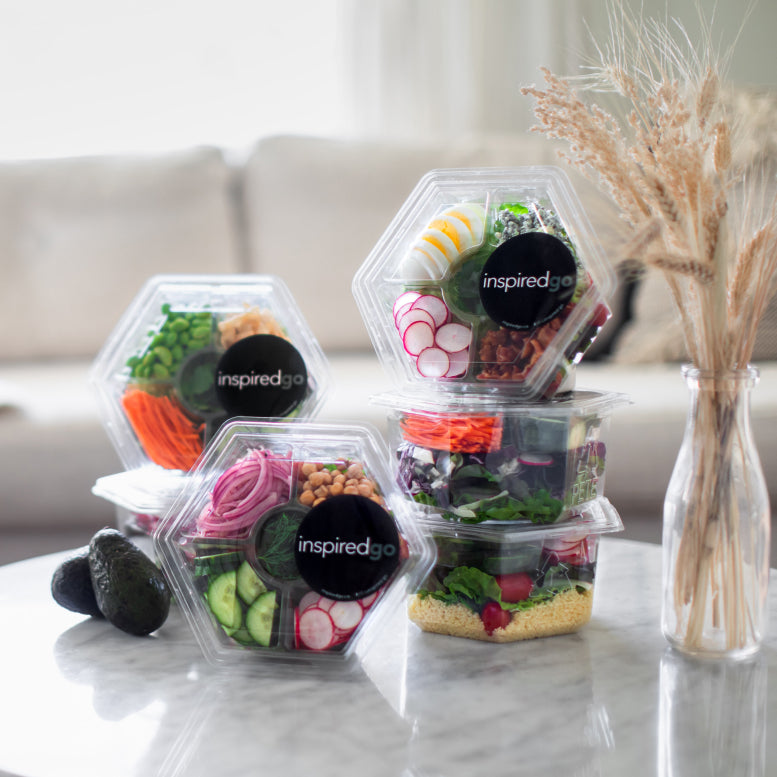What Are Healthy Fruits To Eat?
Table of Contents
1. Exploring Healthy Fruit Options for a Balanced Diet
2. Why Is a Healthy Diet Important?
3. How Do Healthy Meal Delivery Services Support Weight Management?
4. Why Is Inspired Go the Best No-Cook Healthy Meal Option?
1. Exploring Healthy Fruit Options for a Balanced Diet
Maintaining a balanced diet is crucial for optimal health and well-being, and incorporating a variety of fruits into your daily meal plan plays a key role in achieving this. Fruits are packed with essential vitamins, minerals, and antioxidants that support various bodily functions. For instance, apples are rich in dietary fiber and vitamin C, making them a great option for a quick, nutritious snack or as a delightful addition to salads like the Apple Bacon Bliss Salad. Berries, including blueberries, strawberries, and raspberries, are renowned for their high antioxidant content, which can help protect the body against oxidative stress and inflammation. Citrus fruits, such as oranges, lemons, and grapefruits, are excellent sources of vitamin C, essential for immune health. Bananas provide a good amount of potassium, crucial for heart health and proper muscle function. Avocados, although technically a fruit, are loaded with healthy fats and fiber, making them a welcome addition to bowls like the Roasted Fall Bowl. By incorporating a diverse range of fruits into your diet, you can enjoy a variety of flavors while reaping numerous health benefits.
Order fresh salads today →


2. Why Is a Healthy Diet Important?
A healthy diet is essential for maintaining physical health, mental clarity, and overall vitality. It supports immune function, reduces the risk of chronic diseases, and promotes sustained energy levels throughout the day. Healthy food delivery services make it easier to prioritize a balanced diet by offering nutrient-rich meals crafted from high-quality ingredients. These services emphasize whole foods, including lean proteins, vegetables, whole grains, and healthy fats, while avoiding artificial additives and overly processed ingredients. With pre-portioned servings and detailed nutritional information, customers can maintain balanced eating habits without worrying about calorie counting or portion control. By removing barriers to healthy eating, these services empower individuals to make long-term health a practical and achievable goal.
Choose your salads and schedule delivery →
3. How Do Healthy Meal Delivery Services Support Weight Management?
Healthy meal delivery services are an effective tool for supporting weight management goals. Pre-portioned servings eliminate the risk of overeating, while carefully designed meals ensure balanced macronutrients for sustained energy and satisfaction. Lean proteins, fiber-rich vegetables, and whole grains are prioritized to prevent energy crashes and hunger cravings. Nutritional transparency, including calorie counts and ingredient lists, allows customers to make informed choices aligned with their health goals. Many services also offer specialized weight management plans, such as low-carb or high-protein options. By combining convenience, portion control, and nutrition-focused meals, healthy food delivery services empower individuals to achieve and maintain their desired weight sustainably.
Get fresh salads and snacks delivered →
4. Why Is Inspired Go the Best No-Cook Healthy Meal Option?
Eating healthy doesn’t have to involve time-consuming meal prep, and ready-to-eat meal services eliminate the need for cooking entirely. Unlike meal kits that still require chopping, measuring, and preparation, these meals arrive fully prepared, portioned, and fresh—ready to eat in minutes.Each meal is designed to provide a perfect balance of proteins, fiber, and essential nutrients while maintaining flavor and variety. Whether you’re too busy to cook, looking for a convenient alternative, or simply want to eat healthier without the hassle, these no-cook meal options offer a practical, effortless solution.
Try our fresh, ready-to-eat salads →
Frequently Asked Questions
Eating healthy without cooking is achievable by incorporating ready-to-eat nutritious options into your diet. Pre-prepared salads, fresh fruit, nuts, yogurt, and meal delivery services offering balanced meals are excellent choices. Look for meals high in fiber, protein, and healthy fats while minimizing processed ingredients. This approach ensures you maintain a nutritious diet even with a busy lifestyle or lack of cooking time.
Eating healthy on a budget involves planning meals around affordable, nutrient-dense ingredients. Prioritize staples like whole grains, beans, and seasonal vegetables, which are both inexpensive and nutritious. Opt for meal prep services or delivery plans that offer cost-effective options for healthy eating. Buying in bulk, reducing waste, and preparing meals at home also significantly reduce costs while maintaining balanced nutrition.
A healthy diet is one that emphasizes whole, unprocessed foods like fruits, vegetables, lean proteins, whole grains, and healthy fats. It provides the necessary nutrients for energy, growth, and disease prevention while limiting added sugars, saturated fats, and highly processed foods. A balanced diet supports physical and mental well-being and can be tailored to meet individual nutritional needs.
To eat more healthily, focus on gradually incorporating whole foods into your meals. Start by adding more vegetables to your plate, swapping refined grains for whole grains, and opting for lean protein sources like fish or legumes. Stay hydrated and avoid sugary beverages. Small, consistent changes can lead to long-term improvements in dietary habits without feeling restrictive.
Eating healthy is essential for maintaining overall health and well-being. A balanced diet reduces the risk of chronic diseases such as diabetes, heart disease, and obesity while supporting energy levels, mental clarity, and immune function. Consuming nutrient-dense foods provides your body with the vitamins and minerals it needs to function optimally, contributing to a longer, healthier life.

